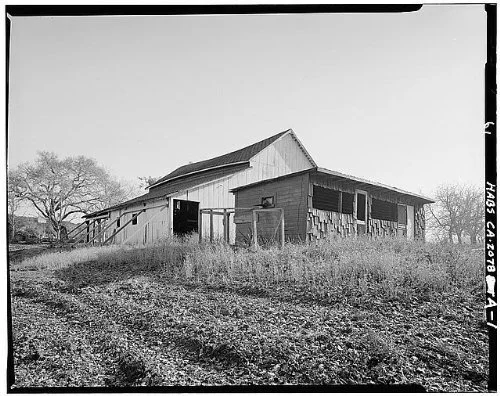I spent many hours of my childhood in chicken coops. If I wasn't gathering eggs from my Grandpa's laying hens or teasing his rooster I was likely with my cousins in the abandoned coop behind my uncle's place that we'd claimed as a clubhouse.
Every home was built with a chicken coop out back, or so it seemed. Both sets of grandparents kept chickens, and so did most of my aunts and uncles. Until the day he died my Grandpa Jess had a hand-painted sign advertising "EGGS" nailed up out front next to the lane.
Nowadays, I'm hard-pressed to find a chicken coop. We have no chickens. None of our neighbors keep chickens. There are chickens around and eggs for sale someplace nearby, I'm sure, but I couldn't give directions.
We've talked about raising chickens. Every spring, as the slugs rise to gnaw on the strawberries, my wife says, "We ought to have chickens." Free-ranging hens are an effective deterrent to slugs, grasshoppers and many other insect pests. They'll also keep down the weeds and add nutrients to your soil if you manage them carefully.
Every time I trim the fat off a fleshy store-bought chicken I'm preparing for the grill, I tell myself, "We ought to raise our own chickens."
Chickens convert feed to meat efficiently. Most broilers will gain a pound of weight for every two-and-a-half pounds of feed. If a bird is allowed to free-range, not only will it be less fatty, but nearly half of its feed will come from foraging grubs, weeds and worms.
Keeping chickens in the backyard is no more bother than having a dog. An 8x10 shed will shelter a dozen hens and so long as they get regular feed and fresh water and ample opportunity to forage, they are likely to thrive.
The most clever chicken coop I've heard of is the portable poultry shelter devised by Virginia farmer Joel Salatin. Dubbed the "chicken tractor," the coop is mounted on wheels and has a mesh screen floor. Pulled to a new location on the farm each day, the hens in the tractor have fresh grass and terrain to scratch and in return they leave behind a thin and readily composting layer of rich manure. When the tractor is pulled onto pastures after sheep or cows have grazed, the hens scratch and scatter the piles of manure, eating the eggs of harmful livestock parasites and hastening the decomposition of waste.
Why, then, do so few of us raise chickens? Maybe it's the cholesterol in those eggs. It's hard to take much pride in a product that other folks point to as dangerous and harmful. Or perhaps it’s the low prices. When a full-size broiler brings less than two bucks at the grocer, you know there's not much margin in being a small producer. And then there's zoning laws. Some people don't take well to chicken coops at their neighbors' place. There's no arguing with them about slugs or the benefits of manure. Dogs and cats are welcome, but not chickens.
When it comes to raising livestock or taking an active role in our food supply, most of us have "flown the coop," so to speak, and would have a difficult time backtracking. Even so, we ought to raise chickens.

